
|
+7 915 042 43 51 |

|
Moscow, Berezhkovskaya nab, bld 20 |

|


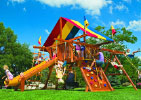
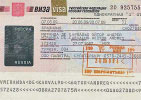
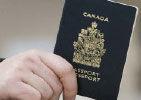



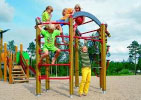
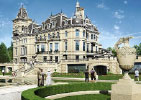


|
|||||
           
|
|||||

|

|
Overview of Russia – Russia is a land of extremes. Even after the collapse of the Soviet Union in 1991, Russia remains as the world’s largest country comprising of over 17 million square kilometers, covering 9 time zones and with a population of around 140 million.
Moscow – Russia’s capital city has a population of around 10.5 million, and is by far the most important economic and governmental centre. Moscow is also home to the greatest number of billionaires in the world. Getting around such a large city can be daunting as its wide lanes are often clogged with heavy traffic but it is also served by one of the most efficient, and cheap, metro systems available anywhere.
Expatriate life in Moscow - for expatriates, Moscow can be an expensive place to live with real estate and housing amongst some of the most expensive in the world. However, Moscow has much to offer in terms of expat life; not only in terms of significant commercial opportunities but in terms of the richness offered by Russian culture as well as a strong heritage in every aspect of the arts and sciences of which Russians are justifiably proud. Modern Moscow is a vibrant city with everything available that is to be found in any other large city, although often at higher prices.
Personal Safety – Moscow is no more dangerous or safe than any other large urban area of comparable size. Indeed many long-term expatriates often comment positively on how safe Moscow feels compared to other world cities. This is not to say that crime is not a problem and every expatriate should try not to draw unnecessary attention to themselves, and be aware of the possibility of petty crime, especially in crowded areas and on public transport. Make a list of emergency telephone numbers – your office, your embassy, Russian-speaking friends, etc. and always keep these with you. You should also register yourself and your family members with your country’s embassy.
All expatriates wishing to work in Russia must obtain a work permit from the Federal Migration Service of the Russian Federation. The process of obtaining a work permit through one’s employer’s office in Russia usually takes around 4 months. Work permits, and the accompanying work visa, are valid for 12 months and have to be renewed in good time, usually by the company’s HR department. Family dependants can also receive visas. Expatriates who earn more than 2 million rubles (approx. $65,000) per annum qualify as Highly Qualified Specialists (HQS) and can receive a work permit and work visa which run consecutively for up to 3 years
Most expatriates who move to Moscow on a long-term employment contract are faced with the problem of finding a proper residence. You can opt for staying in the centre and enjoying the many entertainment, shopping and nightlife options the city has to offer; this is a common choice for single persons or couples without children.
Families that come to Moscow with children mostly opt for staying in the outskirts, which allows them to be located nearer to the international schools and to live in town houses located in purpose-built compounds, rather than the apartments which are found in central Moscow.
Home-finding, from arrival to moving in to the property, usually takes around 4 weeks with the agency fee paid by the tenant. Despite the effects of the recent world financial crisis, property prices in Moscow remain some of the highest in the world.
An orientation tour is invaluable in deciding which area, and in what type of housing, you would like to live once you move to Moscow.
Moscow has a number of international schools that are popular with the expatriate community. These include the Anglo-American, British International and English International schools. All offer English speaking classes with academic qualifications recognised worldwide.
All schools are fee-paying. The fees depend on the grade, level period of enrolment and whether or not your child requires any additional support programmes. In general, fees are between 3,000 and 7,000 euro per term.